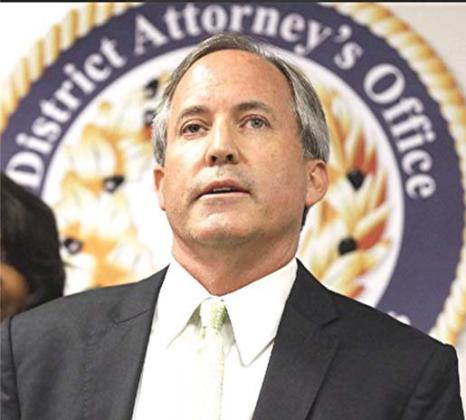In a historic move on Saturday, the Texas House voted to impeach Attorney General Ken Paxton, who has been accused by his fellow Republicans of abuse of office.
One hundred and fortynine House members voted 121-23 to impeach Paxton after hours of debate and speeches from supporters and opponents of the action. Two members were present but not voting while three were absent.
Lt. Gov. Dan Patrick in a statement said the Articles of Impeachment were delivered to the Texas Senate and a special committee to recommend rules and procedures for Court of Impeachment has been appointed and will include Sen. Brian Birdwell, R-Granbury, Chair, Sen. Juan “Chuy” Hinojosa, D-McAllen, Vice Chair, Sen. Brandon Creighton, R-Conroe, Sen. Pete Flores, R-Pleasanton, Sen. Joan Huffman, RHouston, Sen. Phil King, RWeatherford, and Sen. Royce West, D-Dallas.
“When the rules are drafted, a date will be set for when the Senate will resolve into a court of impeachment to consider the articles,” said Patrick.
The Senate trial is tentatively set for late August.
The articles of impeachment were issued by a Texas House investigative committee, which included three Republicans and two Democrats, and stemmed primarily from Paxton’s relationship with one of his wealthy donors, Nate Paul, a real estate developer, whom he allegedly put forth efforts to protect from an FBI investigation and his attempts to thwart whistleblower complaints brought by his own staff.
Paxton will be temporarily removed from the AG office pending a trial in the Texas Senate.
Paxton in a statement on Twitter, denied the accusations and denounced the proceedings as “illegal, unethical and profoundly unjust.”
The 20 articles of impeachment presented by the House committee accuse Paxton of improperly aiding a wealthy donor, conducting a sham investigation against whistleblowers in his office whom he fired, covering up his wrongdoing in a separate federal securities fraud case against him, and other offenses. The impeachment articles also allege Paxton engaged in bribery when Paul hired a woman with whom Paxton was having an extramarital affair.
The committee stressed that Paxton’s request earlier this year for the Legislature to pay $3.3 million to settle a whistleblower lawsuit with taxpayer funds triggered the investigation and ultimately the articles of impeachment. The memo also said impeachment is not a criminal process and its primary purpose is to “protect the state, not to punish the offender.”
The Texas House of Representatives holds the power to impeach, but the Senate must conduct impeachment trials for the attorney general and most of the state’s elected executives and judges, according to state law.
The Texas Constitution does not directly outline impeachable offenses, but it mentions impeachment in connection to criminal matters. This leaves specifics up to the Texas House but signals that the impeachment procedure is intended to address very serious conduct.
Impeaching an official requires a simple majority vote of the House, with the Texas Senate carrying out a trial, in which senators take an oath to be impartial. Two-thirds of the senators present must vote to convict an impeached state leader, per state law. If that happens, the official is then permanently removed from office.
A state leader is immediately suspended, or banned from exercising the duties of their offi ce, after they are impeached by the Texas House and while the Texas Senate conducts its trial. The governor can appoint someone to temporarily fill that role.
No Texas attorney general has ever been impeached and removed from office. The only two elected officials to lose offi ce as a result of impeachment were Gov. James Ferguson in 1917 and District Judge O.P. Carrillo in 1975.

